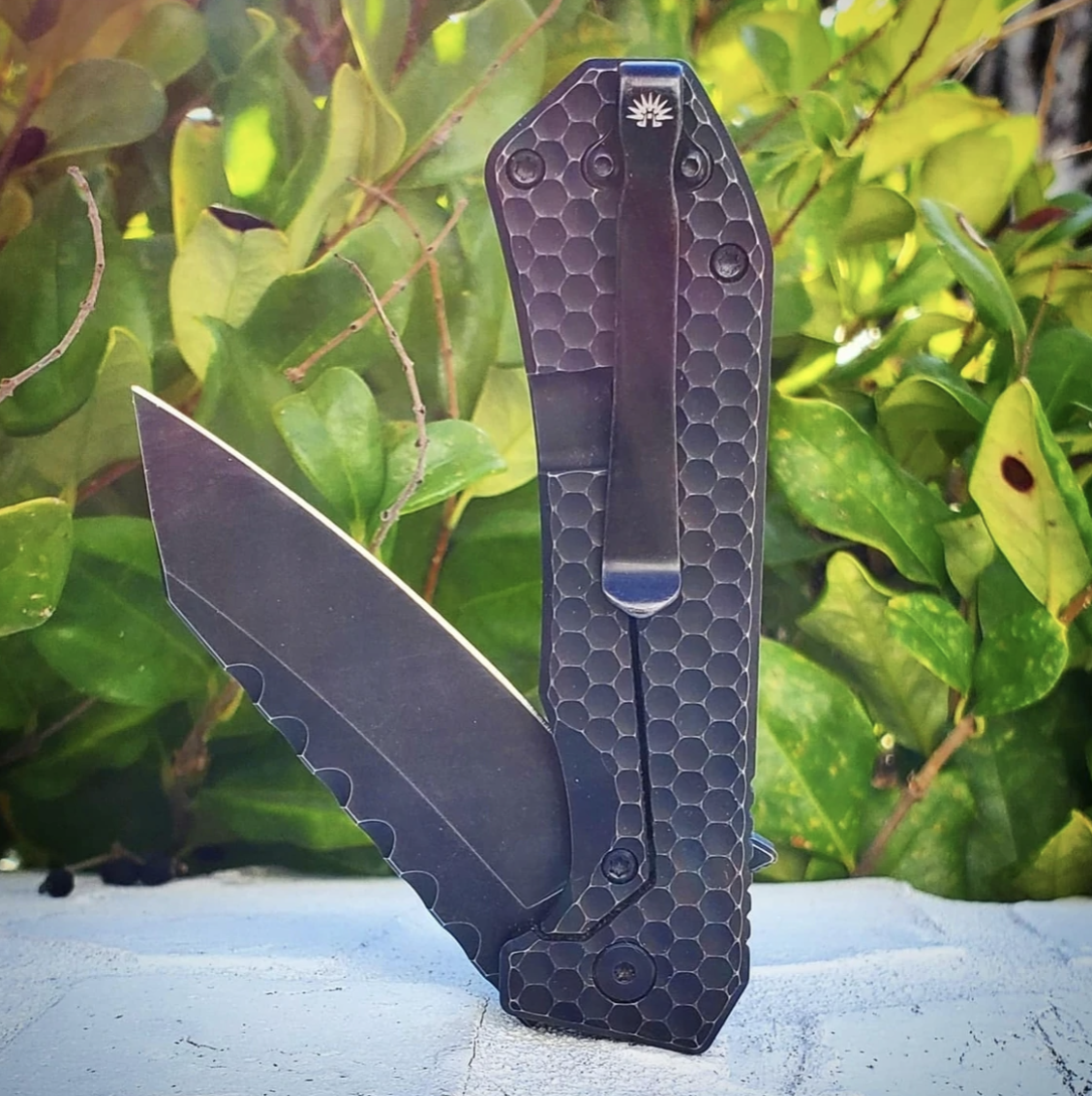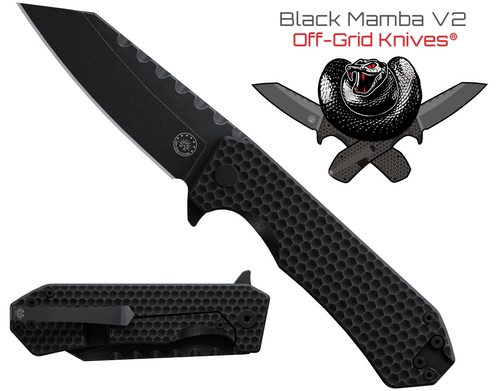Titanium Versus Steel Scales on Knives: Pros and Cons
Jul 22nd 2020
There has been plenty of debate about what metal is best for knives. One of the hotly debated comparisons is titanium versus steel. There are pros and cons to each and which one you want will depend on what the knife will be used for. If you are looking at titanium folding knives for sale, here are some of the features that you should consider.
Titanium Scales
Titanium knives have been popular for some time. They are touted as being superior to other knives. But are they? Let’s take a look.

Pros
The biggest pro for titanium knives is that they are more corrosion resistant than steel. This is especially useful for divers, who will carry the knife of long periods of time in highly corrosive ocean water. Another pro is that titanium is lighter than steel. Reducing weight can help reduce strain during knife use. It is also good for applications where every ounce is important such as backpacking. Titanium is also harder. This makes it less likely to ding and dent during use or storage.
Cons
Titanium is more expensive than steel. It is a rarer metal, and the price shows it. For those concerned about price or value, this might be a deal breaker. While harder, titanium is more brittle than steel. This means it is more likely to break. A titanium knife will not be good for prying or anything that will put sheer force on the blade. It also does not keep an edge as well as steel and will need to be sharpened more often.
Steel Scales
Steel has been used to make blades for centuries. The science behind steel blades is tried and true, but also leaves room for experimentation and improvements.

Pros
Steel is a common material, so steel knives are easy to find and obtain. This also makes it cheaper than titanium. The price will vary depending on the quality of steel, but there are enough options to satisfy most anyone. Since steel is an alloy, knives made of steel are very versatile with different metal mixes giving slightly different characteristics. Steel blades hold their edge longer than titanium. That means you will be less likely to have to stop to deal with a dull edge in the middle of a project.
Cons
The first issue with steel is that not all steel is created equal. If you know the different grades of steel, you could be buying a lesser quality blade than you need. Always check the stamp on the blade to make sure you are getting a good quality metal.Since they are softer, they can bend or dent. They are not likely to under normal use, but it is possible, especially with lower quality steel. Another downside to steel is that it is heavy. For many applications, this is not much of a problem. But those with health issues or traveling may need a lighter knife.
Titanium and Steel Combo
In order to get around some of the downsides of both metals, some companies will combine the two metals. This can be a titanium core with steel outside to create a strong, near unbreakable blade that still retains its sharp edge.

There are also steel blades that are coated in titanium to give the benefit of the extra corrosion resistance. After a bit of sharpening, the steel edge is exposed giving the benefit of the steel. If you are looking at titanium folding knives for sale, the combo metal might be a good option as well.






